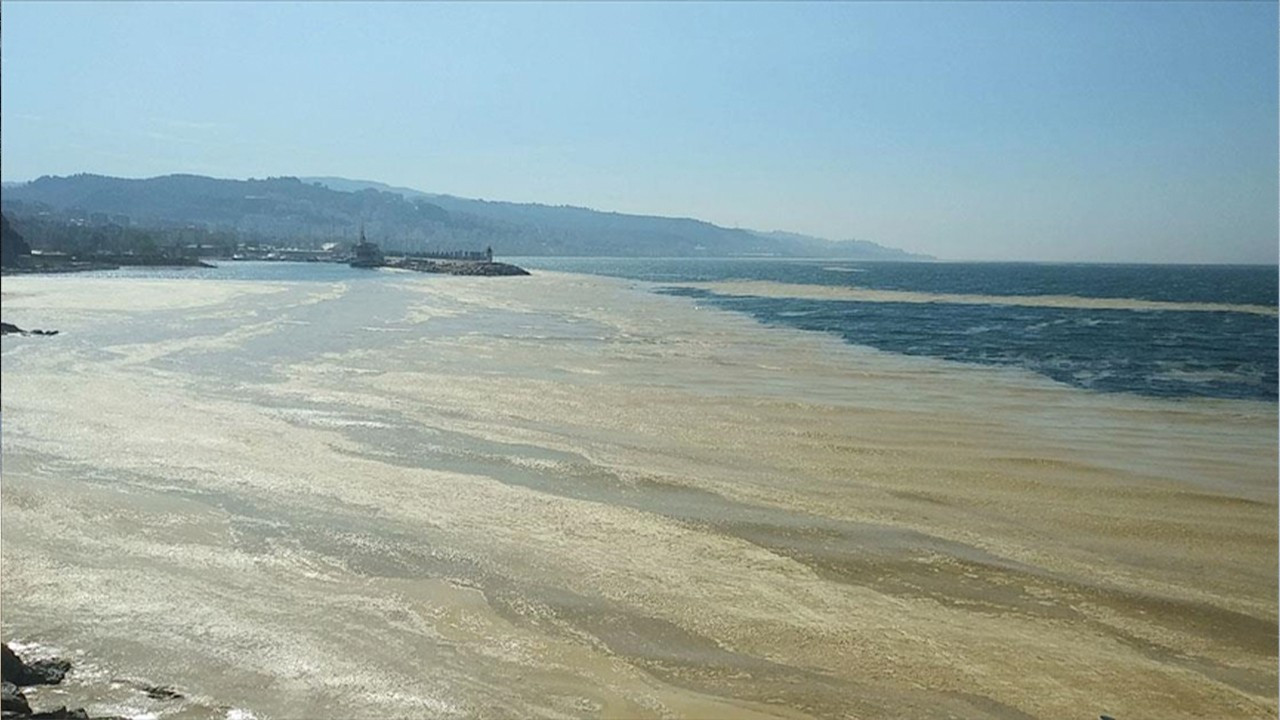Turkey’s seas are rotten, so is its political economy
News of sea saliva (mucilage) in the Marmara Sea, reaching up north inland streams and down north to the Aegean waters, have caused great concern. This mucilage serves as a fitting metaphor for Turkey’s current political situation. As mafia boss Sedat Peker’s videos uncovered the fact that Turkey is a mafia narco-state and is home to a vast money laundering system, what we see is probably just the tip of the iceberg.
News of sea saliva (mucilage) in the Bosphorus and the Marmara Sea, reaching up north inland streams and down north to the Aegean waters, have caused great concern. Turkey’s Ministry of Environment and Urbanization – a paradoxical combination – declared that a workshop about it would be held on the 6th of June.
Better late than never, one might say. Yet given the regime’s approach to environmental issues, which largely consists in extracting all the natural resources for financial gain, there’s not much hope for an effective and sustainable solution to this mucilage.
Heavy industries located all around the Sea of Marmara have been dumping their waste without any restrictions or control. The sewage of 23 million people has also been dumped into the sea. Heavy air pollution, the loss of farming land, as well as the upcoming Canal Istanbul project constitute great ecological threats to the entire region.
The impact on tourism is the least of our concerns. According to hydrobiologist Levent Artüz, the Sea of Marmara “died” in 1989, and what we now see (mucilage), is akin to a “rotting corpse.” The main reason behind it is the tragic loss of biodiversity.
For years now, marine scientists have been warning about the pollution of all the seas that surround Turkey, and the Sea of Marmara is by far the most polluted one. While we only see the mucilage on the surface of the waters, the seabeds are also fully covered with mucilage.
This mucilage serves as a fitting metaphor for Turkey’s current political situation. As Sedat Peker’s videos uncovered the fact that Turkey is a mafia narco-state and is home to a vast money laundering system, what we see is probably just the tip of the iceberg.
Journalist and writer Cengiz Erdinç, who is specialized in drug trafficking and the mafia, contends that had there been the rule of law in Turkey, a prosecutor would have been able to tackle crime partnerships within a matter of days: “Since the 1990s, the same 300-400 people have been committing murders, trafficking drugs and maintaining close ties to Turkish bureaucracy as well as the intelligence services.” (My podcast with Erdinç in Turkish can be reached here.)
Then again, Turkey is not a democracy and there is no rule of law. As millions of people watch Peker’s videos like a Netflix crime series, is society actually aware of how rotten the system and its financial burden on the citizens?
Experts warn that the economic crisis will worsen. A week ago, Prof. Daron Acemoğlu told the independent outlet T24 that the Turkish Presidential system had a negative impact on monetary policies, and that he fears a deeper crisis is looming.
But such warnings don’t do much to ruin President Erdoğan’s mood. On June 1, he was on the state-run channel TRT-1, claiming that he had told the Central Bank governor to keep the interests low, causing another crash in the value of Turkish lira the following day. Bloomberg reported that the TL lost 3 percent of its value after Erdoğan’s speech.
Meanwhile, official figures demonstrate that Turkey’s economy has grown by 7 percent in the first quarter of 2021. According to Korkut Boratav, a professor of economics, the 7 percent growth is with respect to the first quarter of 2020. But if one examines the last quarter of 2020, the economy actually shrunk by 15 percent.
Metaphorically speaking, “the mucilage” we see is disturbing, but the real filth is deeply embedded. A new constitution, new reforms, new action plans or new projects won’t change the situation much. In fact they will only attest to the deviancy of Turkey’s political economy.


 Istanbul faces cholera outbreak due to excessive 'sea snot'Environment
Istanbul faces cholera outbreak due to excessive 'sea snot'Environment